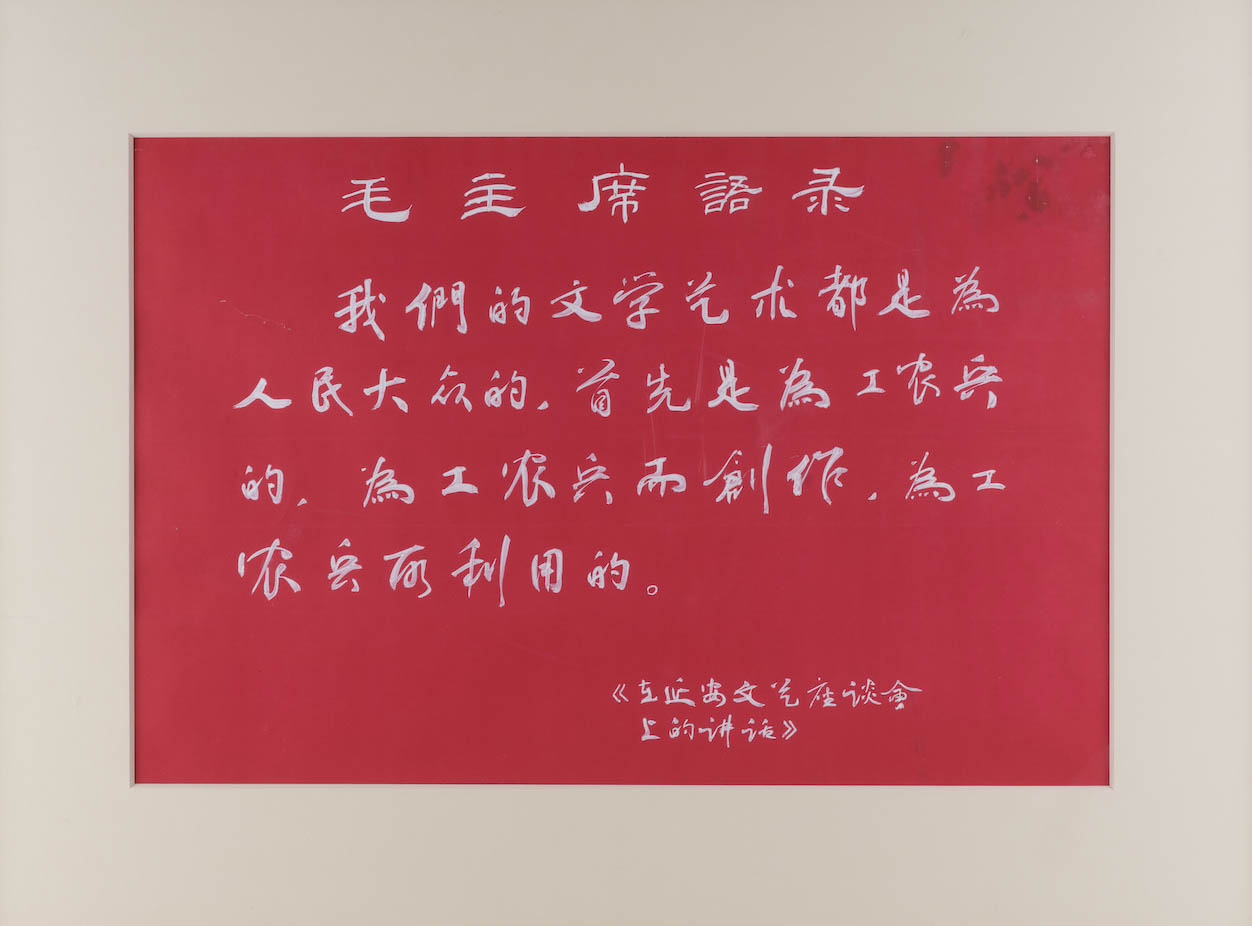
Lu Yanshao
Three Paragraphs of “Quotations from Chairman Mao Zedong” in Semi-cursive Script
1960
Color on Paper, Ink and Wash on Paper
In the 1960s, a large number of badges of and quotations from Chairman Mao were produced and spread. In that era with vigor and vitality, it’s popular for artists in the New China to copy “quotations from Mao Zedong” with the function and purpose of a specific era. Lu Yanshao’s calligraphy works Quotations from Chairman Mao Zedong are copied on white and red paper, and the content is excerpted from A Speech at the Yan’an Forum on Literature and Art and On Agricultural Cooperation respectively made by Chairman Mao in 1942 and 1955.
Paragraph 1: “We should trust the masses, and we should trust the Party. These are the two fundamental principles. If you doubt them, nothing can be achieved.” Those semi-cursive characters are formed by composed, delighted and smooth lines that reaches the extreme of variation. Paragraph 2: “After the enemies with guns have been wiped out, there will still be enemies without guns; they are bound to struggle desperately against us, and we must never regard these enemies lightly. If we do nor now raise and understand the problem in this way, we shall commit the gravest mistakes.” The running script is done with technique of cursive handwriting. Moisture of brush varies in the work, in which the flexible stokes and the Chairman’s passionate determination bring out the best in each other. Paragraph 3: “All our literature and art are for the masses of the people, and in the first place for the workers, peasants and soldiers; they are created for the workers, peasants and soldiers and are for their use.” For the characters, the lines turn roundly and freely, and the structures rise and fall with handwriting as a whole.
The three paragraphs by Lu Yanshao convey the core idea which is people-oriented. Through plain ink language, the artist freely spreads the profound meaning on paper. The flying lines accurately capture Chairman Mao’s active thoughts, and visualize the great vitality of language.
(Edited by Li Hanning & Yang Zhige, 2021)

